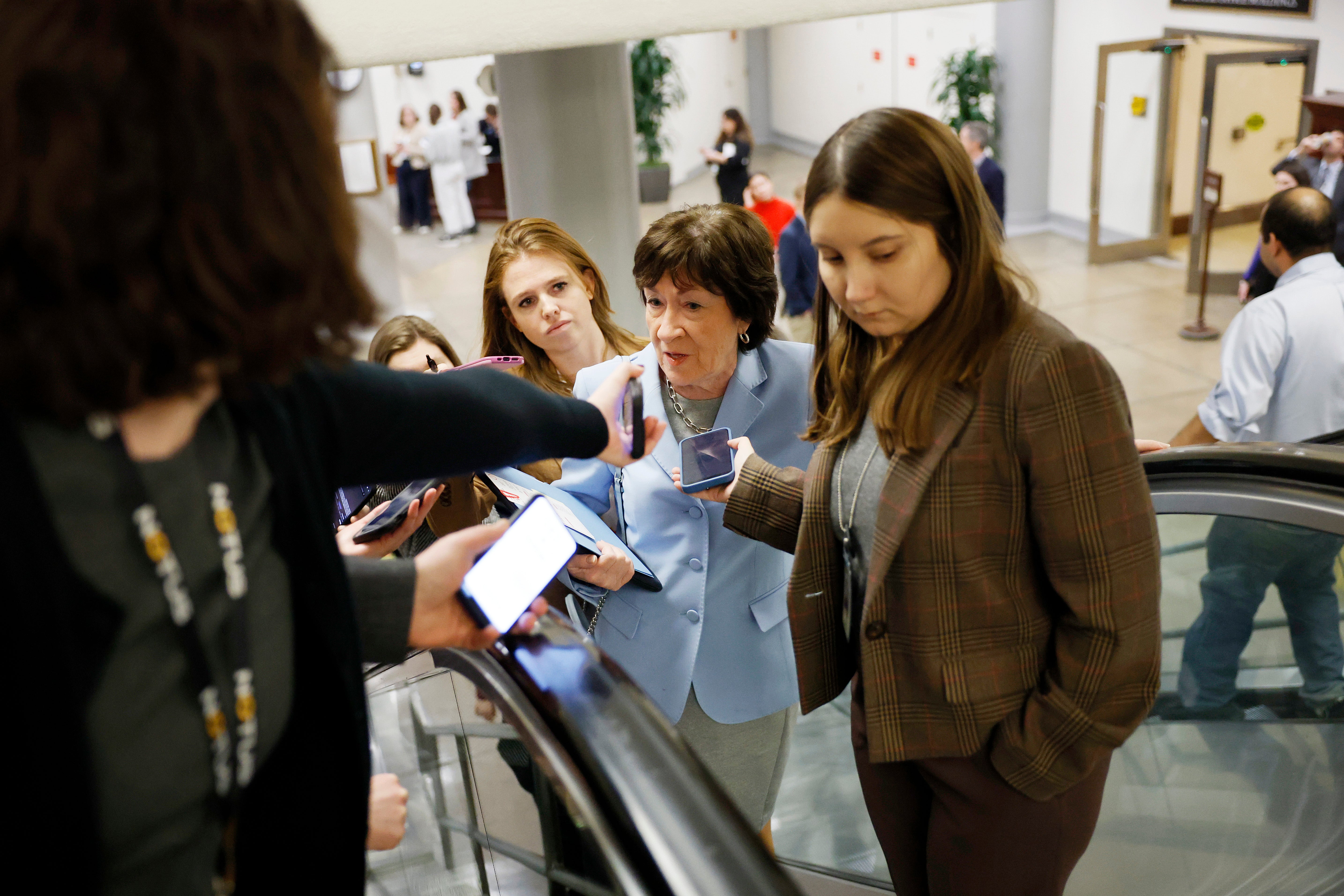Republican Sen. Katie Britt is one of President Donald Trump’s biggest supporters. She shepherded the Laken Riley Act, Trump’s first big piece of anti-immigration legislation, through the Senate, and famously delivered the response to Joe Biden’s final State of the Union address.
But last week, the Trump administration dropped a tactical nuke on her state when the National Institutes of Health announced that it would cap the amount of indirect costs that research institutions can charge the government at 15 percent.
That’s because plenty of people in her state rely on jobs funded by the NIH. Alabama received 99 awards worth more than $42 million for 2025 alone.
A judge issued a temporary restraining order after 22 state attorneys general filed a lawsuit to stop the funding change, which comes as Senate Republicans plan to confirm Robert F. Kennedy Jr. to be the secretary of the Department of Health and Human Services.
While Democrats have been up in arms about Trump and the Elon Musk-led Department of Government Efficiency’s gutting of federal bureaucracies, health research cost cutting could also hurt Republicans in states where universities make up large chunks of the workforce.
The University of Alabama at Birmingham is one of the biggest employers in the state. The NIH awarded $41 million in grants to UAB for the 2025 fiscal year. Britt told a gaggle of reporters on the Senate train Tuesday that both fiscal responsibility and federal research matter, something she said she stressed to Robert F. Kennedy Jr.
“I told him we are $36 trillion in debt, that's not just fiscally irresponsible, it is morally irresponsible, and we have got to make sure that we are making judicious decisions that have the biggest impact,” she told reporters. “He discussed that, he said he absolutely understood that we need to keep both research and innovation alive and well, and you know that you have to have enough technology and laboratory facilities to be able to do that.”
For all her pro-Trump posturing, Britt is a member of the most elite club within the elite club that is the U.S. Senate: the Appropriations Committee. As Inside Washington likes to remind people, Washington has three parties: Democrats, Republicans and appropriators. As Democrats and Republicans posture, appropriators in both parties hunker down and write the budget.
That means they bring home millions of dollars to their home states, something Britt’s predecessor, Richard Shelby, mastered in the form of earmarks. Britt served as Shelby’s chief of staff and he hand-picked her to be his successor, while Alabama’s other senator, Tommy Tuberville, does most of the pro-Trump grandstanding.

Sen. Susan Collins, the chairwoman of Appropriations Committee, told The Independent she worried about the cuts. Collins is up for re-election in Maine, which received $14 million in NIH money for fiscal year 2025.
“I've already called RFK Jr., who has pledged to me to re-examine the directive once he's confirmed,” she said.
When the NIH posted on X last week about the cuts, it shared an image showing Harvard, Yale and Johns Hopkins University’s massive endowments. But other institutions will be hit harder. For instance, the University of Wyoming, which has a much smaller endowment, took $557,149 in the fiscal year.
Senate Majority Whip John Barrasso of Wyoming said he was listening.
“I’m going to meet with some members of the financial aid teams of a number of our community colleges later today,” he told The Independent.
The same goes for Rep. Andrew Garbrarino, a Republican from New York.
“I think everything right now is just they're doing some fact finding, but I will tell you that areas like Cold Spring Harbor Laboratory and others Sloan Kettering, where we have a lot of medical research being done for cures of cancer and other awful diseases might not be able to survive if those current order stays in place,” he told The Independent.
“Think people mistake the indirect costs as just purely administration when they also include lab technicians as well as, you know, freezers and other equipment used specifically in the research,” he said.
At the same time, Republicans stopped short of saying they would speak with Musk, who has served as Trump’s chainsaw to the federal bureaucracy.
When asked whether she had spoken with Musk, Britt dodged.
“I think, Elon is going to present these things to different agencies and departments, and then I think we have the opportunity to have these discussions and make some meaningful change,” Britt told The Independent.
Collins said that she had not spoken with Musk.
“No, I've spoken with the person who's going to be in charge of the department that oversees NIH,” she told The Independent.
This article was amended on 12 February 2025. It originally stated that Sen. Katie Britt spoke with President Donald Trump. But that was incorrect. She spoke to Robert F. Kennedy Jr.







